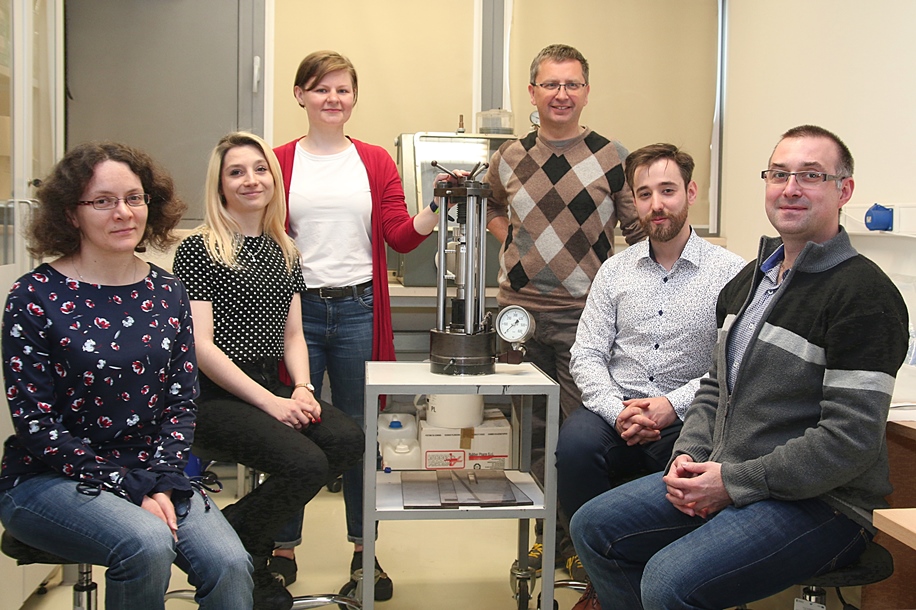Scientists from the University of Silesia in Katowice developed a method of synthesis that allows to produce chemically pure polycaprolactone (PCL-u). It is a polymer that degrades naturally in about two years and demonstrates tissue consistency, so it can be used in pharmaceutical and medical industry. It also has good processing properties, it is soluble in many organic solvents and may form miscible polymer blends. Thanks to these properties, it has a wide range of high-volume applications, which generates interest from many research and industrial centres.
PCL can be used as a medium in controlled release drug delivery systems, tissue culture medium in tissue engineering or as filling material. Thanks to the fact that it degrades naturally in the human body, it can also be used for the production of absorbable surgical yarns or shape memory implants, such as staples for bone fractures or special bars used for the treatment of spine diseases.
Due to its interesting properties, the polymer can also be used in industry – as an additive to biodegradable packaging and films – and, in combination with starch, for the manufacture of plastics from which disposable plates and cups are made. Due to the high-volume production of PCL and its wide application in medicine, it is important to improve its production process, usually by changing the method to obtain it.
Ultimately, the process should be controlled in such manner that producers obtain PCL with specific desired properties at reduced technology requirements.
This is a difficult task mainly due to the potential application of PCL in medicine, where tools and objects made of PCL are in contact with human tissues, which makes it necessary to maintain the above-average purity required by manufacturers. Moreover, production of this polymer should be environmentally friendly.

Photo: Press Section
Scientists from the University of Silesia proposed an interesting solution. They changed the conditions of polymerisation process of ε-caprolactone (ε-CL), which enabled them to produce polymers of outstanding purity. The use of water as chemical reaction initiator and high pressure as the catalyst proved to be successful. The presence of water allows to control the reaction course, whereas carrying out the reaction in high pressure conditions enables to obtain a high purity product, which means e.g. the lack of metal ion content, as well as organic and non-organic pollutants. PCL obtained in this way can be used not only in industry, but also in medicine, e.g. for the manufacture of surgical yarns, as a drug carrier or frame in tissue engineering. Moreover, the proposed method of pressure polymerisation of ε-caprolactone allows to simplify the reaction mixture composition, which results in reducing the production costs. The described solution was covered by patent protection.
The authors of the invention are employees of the Faculty of Science and Technology: Andrzej Dzienia, MSc Eng., Dr. Eng. Paulina Maksym, Assoc. Prof. Magdalena Tarnacka, Assoc. Prof. Kamil Kamiński, Professor of the University of Silesia and Full Prof. Marian Paluch, PhD.





